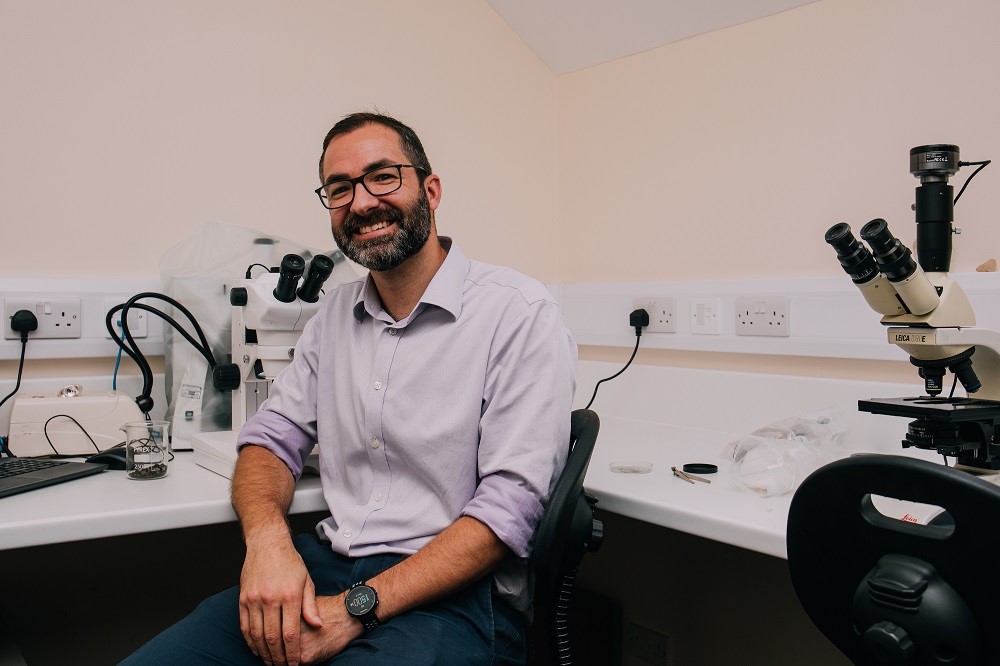More than 340 businesses across the East Midlands have so far been supported in the development of their sustainability plans, as a result of the net zero strand of the East Midlands Accelerator project.
East Midlands Chamber, together with a project consortium of the region’s universities and business support agencies, is delivering the Net Zero Accelerator project, which helps organisations with changes such as reducing their carbon footprint, switching to electric vehicles and creating sustainability action plans.
Throughout the spring and summer, the project, which is part-funded by the UK Government through the UK Community Renewal Fund and led by the local authority in each region, has offered grant funding, growth vouchers and fully-subsidised training to businesses in the eligible areas of Derbyshire Dales, High Peak, Mansfield, Bassetlaw, Newark and Sherwood, Nottingham city and Leicester city.
East Midlands Chamber deputy chief executive Diane Beresford said: “A key condition for a business receiving grant funding through the East Midlands Accelerator project is that it must commit to starting its sustainability journey. The Chamber has supported this process by enabling businesses to access the valuable support on offer from the region’s universities and other partners.
“Businesses recognise that greener practices make business sense – not just because of the long-term efficiency gains, but because presenting a clear sustainability strategy is becoming increasingly important when it comes to winning new contracts and customers.
”Once businesses have a top-level sustainability plan in place, they will need capital funding to change their infrastructure accordingly, as well as ongoing training. I’m hoping that local authorities will address this as part of their Shared Prosperity Fund plans.”
What is the Net Zero Accelerator?
Net Zero Accelerator support has been wide-ranging, and includes:
- Support on making the switch to electric vehicles through the University of Derby’s Cenex Electric Fleet Transformation scheme.
- Support on carbon reduction and environmental management from the region’s universities. Carbon and environmental management consultancy and training have enabled businesses to work towards carbon literacy accreditation and the bronze level of the Investors in the Environment standard.
- Net zero student placements and sustainability audits in partnership with the three Leicestershire universities, giving businesses firm plans on where they might take action.
- Support from the Zellar sustainability platform, with East Midlands Chamber investing in 400 annual software licences to give SMEs the opportunity to track, measure and promote their sustainability activities, whether that be, for example, the appointment of a green champion, an audit of travel emissions, or the installation of LED lighting. So far, 336 businesses have registered their interest.
- Specialist sector support from two of the project’s partners. Food and Drink Forum experts offer decarbonisation and sustainability support to help food producers assess how they can reduce environmental impact by making changes to their production space and processes. Marketing Peak District and Derbyshire offers specialist one-to-one business support to help visitor economy businesses reduce their carbon footprint and achieve “clean, green growth”.
Interest from businesses in net zero support reflects recent findings from the Chamber’s ongoing research in collaboration with the University of Derby, which identified the proportion of businesses considering green growth as part of their business strategies has more than doubled over the past four years from 9.7% in 2018 to 21.5% in 2022.
Net Zero Accelerator case studies
Green Tomato (Midlands), Leicester
Established in 2020, Green Tomato (Midlands) is Leicester’s first emission-free, mobile greengrocery. Its nostalgic 1970s milk float draws in customers across Stoneygate, Knighton and Clarendon Park.
Granting residents access to high-quality fruit and vegetables at the kerbside and through online orders is helping the city’s households reduce their supermarket trips and carbon footprint.
The business benefited from support via a 12-week University of Leicester net zero student placement and sustainability audit, as well as attending carbon literacy training delivered by De Montfort University and the University of Leicester. The audit recognised what the business had known for some time – that it is officially carbon positive.
Nisha Ravat, owner of Green Tomato, said: “What a massive difference the East Midlands Accelerator project has made to our business. The time I’ve invested in every aspect of the project is already starting to pay dividends – in terms of how we’ve digitised our processes, developed personal confidence, become more active on social media, and all the training we’ve received on profit and loss, and analysing markets.
“Better still, we’re now not only recognised as carbon neutral but carbon positive. As a relatively new microbusiness, we really couldn’t have done this on our own.”
RDD Europe Ltd, Leicester
RDD Europe Ltd is a point-of-sale design development manufacturing company based in Leicester. Its display stands are used by well-known brands across a variety of retail sectors including health and beauty and consumer electronics.
Participating in the University of Derby’s carbon literacy and environmental management training means the business can now work towards the bronze level of the Investors in the Environment standard, as well as formally implement a company environmental policy and appoint green champions.
Deborah Walker, managing director at RDD Europe Ltd, said: “As a manufacturer working in a highly competitive market, we’re continually looking at innovative ways in which we can differentiate ourselves; whether that be a sharper focus on lean management to help us deliver in the most profitable way possible, or investing in sustainable practices to give us the edge when it comes to bidding or quoting for contracts. Support from East Midlands Accelerator has helped us do just that.”
Cave Escape Nottingham Ltd
Cave Escape is the world’s only permanent escape room venue located in a subterranean cave system and has proved popular for its super-immersive, filmset-like experiences. It attracts more than 15,000 visitors annually and has won multiple visitor awards, as well as recognition as the top-rated venue on TripAdvisor for “fun and activities” in Nottingham.
The business has taken advantage of the Chamber’s offer to sign up for free, one-year access to the Zellar sustainability platform. Participation means the business can put on firm display its commitment to sustainability; whether that be small steps like adding smart plugs to all devices, or appointing a sustainability champion.
Jennifer Gilbert-Scott, creative director at Cave Escape Nottingham Ltd, said: “Support from East Midlands Accelerator has not only allowed us to stay ahead of the curve in terms of technology, but also in our commitments as a sustainable business. Each is an important determining factor for members of the public and businesses alike when it comes to choosing where they spend their leisure time.”
Archaeological Research Services, Bakewell
Archaeological Research Services (ARS) is one of the UK’s leading archaeological and heritage services providers. Its consultancy, fieldwork and specialist services are used by a wide range of commercial clients, from large infrastructure and private construction, to national and local government, national parks, universities and the Heritage Lottery Fund.
The business recognised a need to record all excavation data in a robust and logical manner, allowing data interrogation on a much wider scale. An £8,000 grant from the East Midlands Accelerator project has allowed the business to purchase further iPads, which will run its newly-created digital recording app and aid the switch from paper records.
Recognising the challenges of sustainability and carbon footprint, the business welcomed the opportunity to join the University of Derby’s Cenex electric vehicle programme.
Will Throssel, chief operating officer at Archaeological Research Services, Bakewell, said: “One of the challenges we have in moving from our current model of diesel vans is that vehicles go to a site within the middle of nowhere. Ultimately, there aren’t any charging facilities there, and it is unknown where that vehicle will go at the end of the day. The electric fleet programme has helped us to think through those challenges, and see what the potential next steps are to enable us to start that transition.
“The support on EV investment and developing our own sustainability plan we’ve received from East Midlands Accelerator only adds to our resilience as a business.”
Treak Cliff Cavern, Castleton
Treak Cliff Cavern is an underground wonderland open to school visits and the general public. As well as being a popular visitor attraction, the cavern is hub of productivity – mining its own blue john and producing jewellery at its on-site workshop.
The cavern’s position on the side of the remote Treak Cliff hillside means it has no mains water; instead it needs to collect and manage its own supply. Similarly, it has no gas on site, nor vehicular access.
Covid had a big impact on this indoor visitor attraction’s ability to invest in the equipment needed to reach the next level of sustainability.
Support from East Midlands Accelerator provided grant funding for the purchase of a solar voltaic system that will not only harvest light for the caves but provide the electricity needed to power the jewellery workshop.
The project also afforded access to the University of Derby’s carbon literacy support, and environmental management and accreditation training. The training gave the business access to useful learning and resources via the Investors in the Environment (IIE) online portal, and is now firmly on its way to achieving IIE bronze accreditation as a result.
Investing in renewable energy not only puts the business in the best position to weather rising energy bills, but is also a clear signal to visitors that the cavern operates in a way wholly sympathetic to its environment. School visitors in particular will be encouraged to learn about the power of natural energy.
Vicky Turner, owner administrator at Treak Cliff Cavern, said: “We’ve always been careful custodians of the resources we have here in this glorious part of High Peak, but support from the East Midlands Accelerator project means we can continue at pace with our conservation ambitions; using the solar panels as a springboard to the next stage of our journey – ground heat pumps.”








